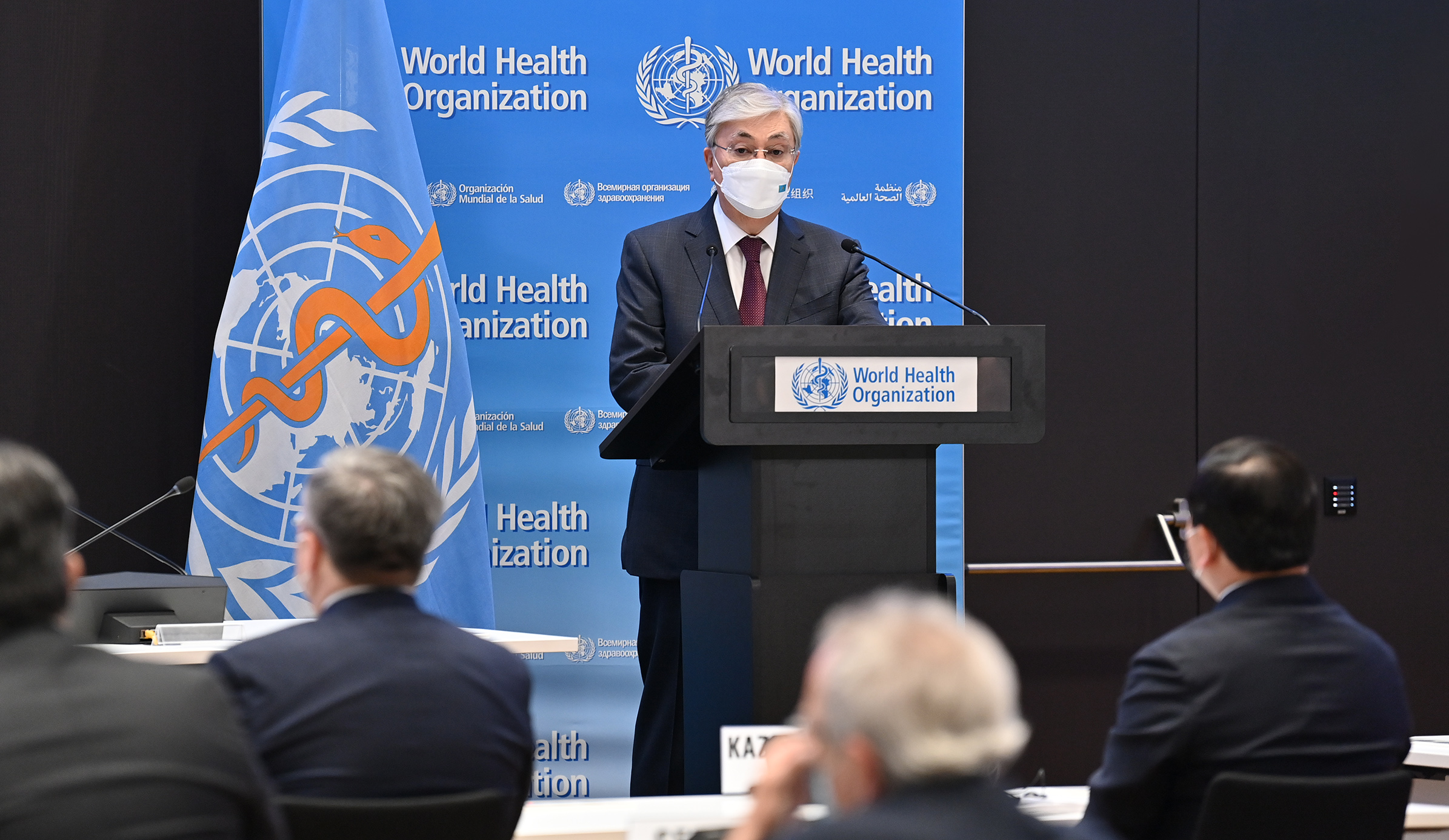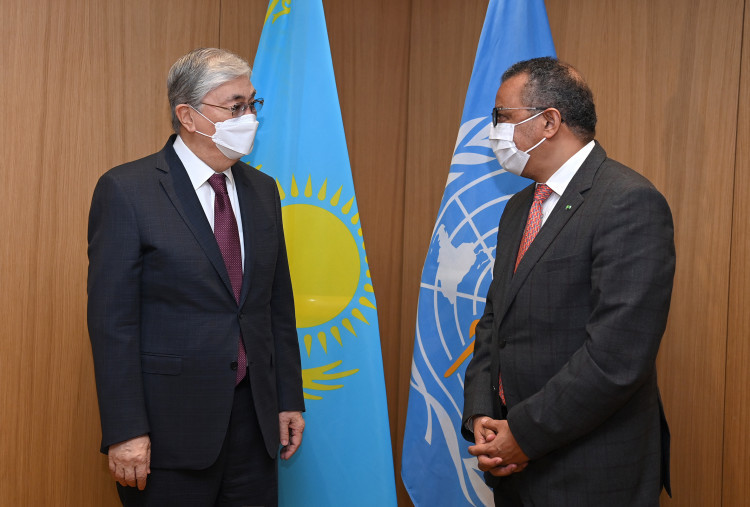NUR-SULTAN – The COVID-19 outbreak has revealed many weaknesses of the international system and rising systemic inequalities with deep social and political implications, said President Kassym-Jomart Tokayev at the special session of the World Health Assembly (WHA) that gathered in Geneva from Nov. 29 to Dec. 1, reports Akorda press service.

Tokayev at the assembly. Photo credit: Akorda
Tokayev participated in the session, which was held for the second time in the history of the World Health Organization, during his official visit to Switzerland.
Welcoming the participants of the WHA, Tokayev noted the critical importance of combating the COVID-19 pandemic that became ever more urgent as South Africa reported a new variant dubbed Omicron that the WHO has defined as an extremely dangerous variant.
In the fight against the still-circulating coronavirus infection, Tokayev noted the crucial role of the WHO.
“All WHO member states and their health systems have experienced and continue to experience major upheavals. As new and dangerous strains of the coronavirus begin to spread rapidly around the world, the number of COVID-19 cases is expected to increase significantly in the coming weeks,” said Tokayev.
The pandemic requires countries to think of new approaches in how they deal with such challenges. Last year shows that hardly anyone was prepared for this kind of outbreak and hardly anyone expected it would play out like it did causing millions of deaths around the world.
Tokayev said that the most important task now is to “close the gaps that have made us vulnerable to the virus.”
“That is why we have come together in this special session with the sole purpose of considering a WHO convention or international instrument on pandemic preparedness and response. Let me thank the working group of the 74th World Health Assembly for its preparatory work and report. Kazakhstan approves the proposals to the WHO convention aimed at improving pandemic preparedness and response measures,” said Tokayev emphasizing Kazakhstan’s support for the WHO.
He stressed the importance of vaccine equity in the world. With Omicron confirmed in Africa and Europe, it raises concerns about global vaccine equity and hesitancy. 54.4 percent of the world population has received at least one dose of a COVID-19 vaccine with 7.98 billion doses administered globally, but only 5.9 percent of people in low-income countries have received at least one dose.

Tokayev and WHO Director-General. Photo credit: Akorda
“We fully support the WHO strategy to ensure global vaccination against COVID-19 by mid-2022,” said Tokayev.
During his meeting with WHO Director-General Tedros Adhanom Gebreyesus, the sides discussed the cooperation between the WHO and Kazakhstan. Tokayev briefed the WHO chief on its QazVac vaccine and the progress in mass vaccination.
He said that the WHO is a reliable partner for Kazakhstan and that he appreciates Gebreyesus’s personal contribution to the development of the WHO.
“We need to stick together in the fight against coronavirus,” said Tokayev.
The sides also emphasized the importance of coordinating international efforts to improve public health and in doing so, Tokayev said that primary health care and universal health care coverage are the two most important vectors of the healthcare system.

